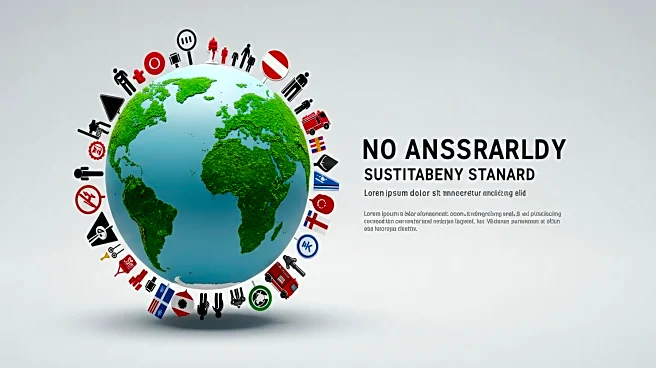What is the story about?
What's Happening?
The International Auditing and Assurance Standards Board (IAASB) has released two new documents to assist global jurisdictions in adopting and implementing its International Standard on Sustainability Assurance (ISSA) 5000. This guidance is designed to help regulators, standard setters, and stakeholders identify relevant requirements for limited and reasonable assurance engagements without altering the full standard. The IAASB has also clarified that ISAE 3000 (Revised) and ISAE 3410 will no longer apply to sustainability assurance engagements once ISSA 5000 becomes effective in December 2026. Additionally, the IAASB has updated its adoption information online.
Why It's Important?
The introduction of ISSA 5000 marks a significant step in standardizing sustainability assurance practices globally, which is crucial for enhancing transparency and accountability in corporate sustainability efforts. By providing clear guidance, the IAASB aims to facilitate the adoption of consistent assurance standards, potentially influencing how companies report sustainability metrics. This could lead to increased investor confidence and better alignment with global sustainability goals, impacting industries that rely heavily on sustainability reporting.
What's Next?
As ISSA 5000 becomes effective in December 2026, jurisdictions worldwide will need to adapt their regulatory frameworks to incorporate these new standards. This transition may involve significant changes in how sustainability assurance is conducted, requiring companies and auditors to update their practices. Stakeholders, including regulators and standard setters, will likely engage in discussions to ensure smooth implementation and address any challenges that arise during the transition.
Beyond the Headlines
The adoption of ISSA 5000 could lead to broader implications for corporate governance and ethical reporting practices. As sustainability becomes a focal point for investors and consumers, companies may face increased pressure to demonstrate genuine commitment to sustainable practices. This shift could drive innovation in sustainability reporting and assurance, encouraging companies to integrate sustainability into their core business strategies.














